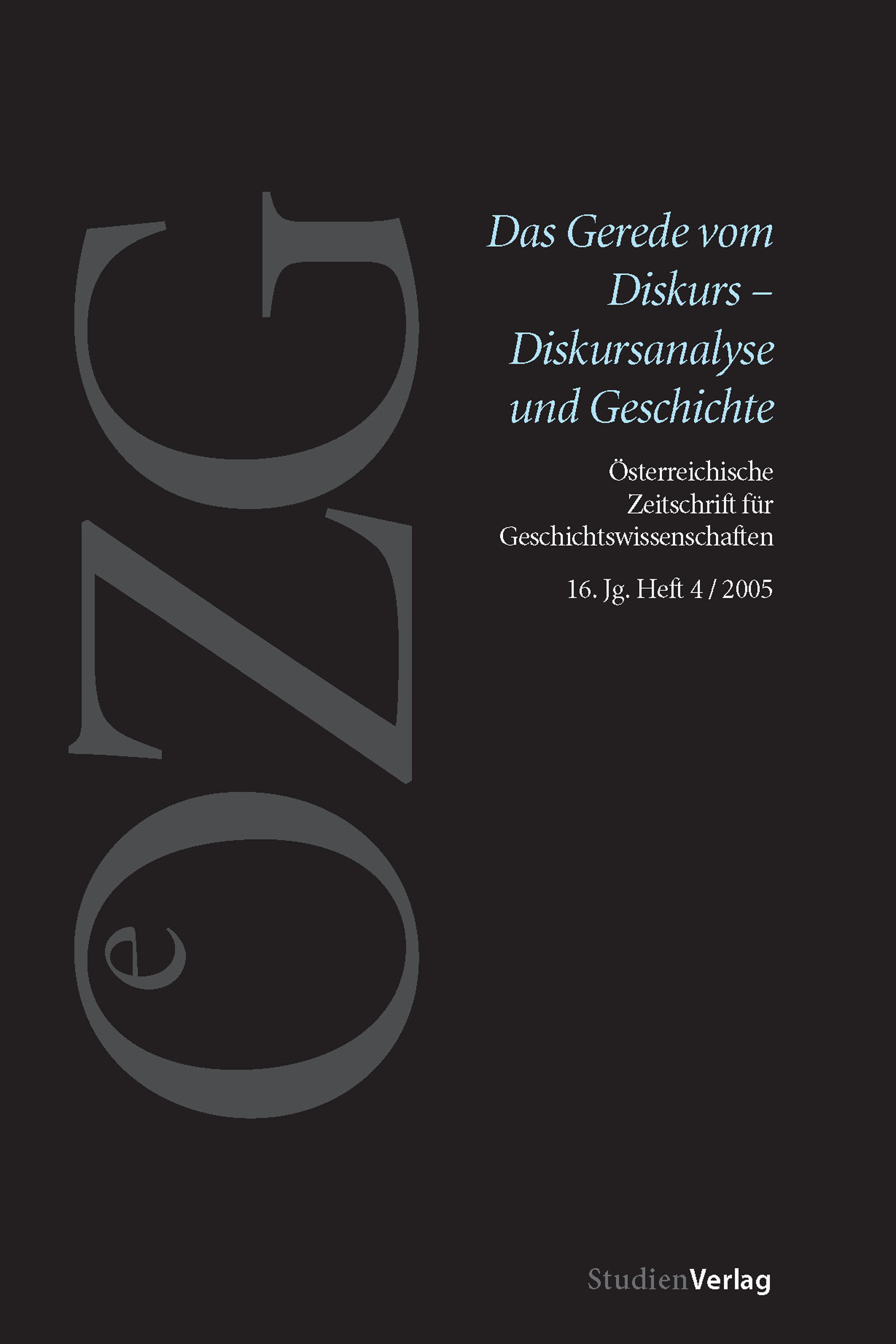Wenn Diskurse baden gehen. Eine handlungstheoretische Fundierung der Diskursanalyse
DOI:
https://doi.org/10.25365/oezg-2005-16-4-5Abstract
The terms ›discourse analysis‹ and ›discourse theory‹ may appear to explain a phenomenon, which is in need of explanation. Yet, they actually fail to do so because of a lack of law-like assumptions at the macro-level of discourse. In recognising Foucault’s decision to concentrate on the outer appearance of a given discourse (i.e. on the surface of given utterances), one can only assume the existence of abstract mechanisms of exclusion, but without understanding the causes of why a certain mechanism may be working at any given moment. This gap in Foucault’s explanatory framework can be solved by employing the model underlying modern, sociological ›Rational Choice‹ theories (following James S. Coleman and Hartmut Esser) and by hermeneutical concepts developed – mainly by Donald Davidson – in the field of analytical philosophy. The chief clue as to an explanation for the emergence, stability and effects of discursive rules has to be deduced from the presumption of subjective rationality. From this point of view, discourse analysis and hermeneutics not only refer to each other but are mutually dependent on each other. Finally, this approach integrates hermeneutical understanding and discourse analysis in a deductive explanatory framework.


